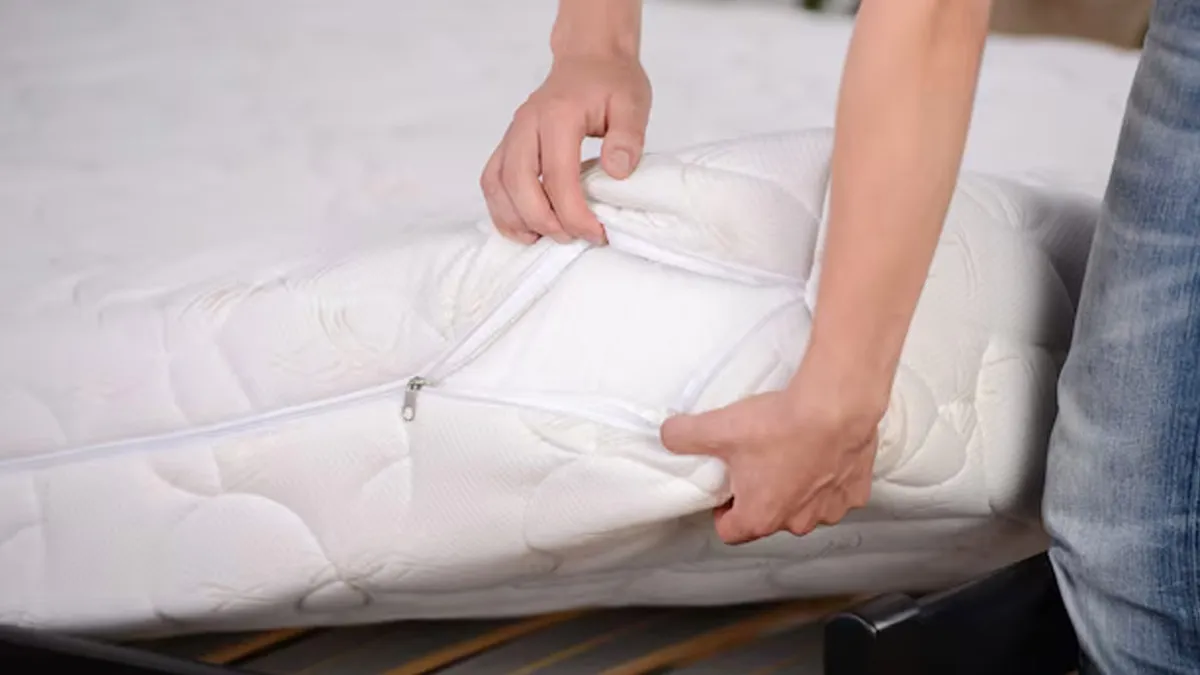
A good night's rest is usually regarded as the key to being healthy. But what if the very surface that you are resting on is slowly ageing your body? Mattresses are not merely a matter of comfort, they have a significant contribution to the way your body rests, repairs, and recovers every night. A poor or worn-out mattress can do more than give you some short-term discomfort over the long term. It can impact your back, skin, posture, and even your energy levels.
Table of Content:-
What Bad Sleep Surfaces Do to Spine and Skin Over Time?
1. The Mattress-Spine Connection

When you lie down, your spine is ideally positioned to remain neutral. Your mattress should also help keep it this way by evenly distributing the weight of your body and providing pressure relief. An ageing or inferior mattress, however, cannot do this anymore.
Over time, you might notice:
- Morning stiffness or soreness in the lower back
- Persistent neck or shoulder pain
- Worsening posture
- Trouble falling asleep due to tossing and turning
According to a 2004 study, significant improvements in back pain, stiffness, and sleep quality were found with medium-firm mattresses.
2. Pressure Points and Premature Ageing
A sagging mattress doesn't just harm the spine; it creates uneven pressure on the hips, shoulders, and knees. This constant strain can affect blood flow and lead to inflammation over time.
Muscle tension, aching, and even minor nerve compression can occur, especially if your mattress is more than 7–8 years old. Some people begin waking up more tired than when they first lay down, a subtle but increasing indication that their mattress is no longer working for them.
Also Read: Toxic Mattress Chemicals Linked To Cancer And Brain Damage: Here Are Some Safer Options
3. Skin Health Suffers Too

Here’s a lesser-known fact: your mattress can also affect your skin. Old mattresses tend to accumulate dust mites, bacteria, dead skin cells, and moisture, all of which can contribute to skin irritation, acne, or allergies.
If you're waking up with unexplained breakouts or itchy skin, especially around areas that touch the pillow or bed (like your cheeks, back, or thighs), your mattress and pillow covers may be the culprit.
A 2020 review found that 47-80% of children and 33-90% of adults with atopic dermatitis have sleep disturbance, typically exacerbated by environmental triggers, such as allergens in the bed and poor sleep hygiene.
4. Impact on Circulation and Swelling
Ineffective support can disrupt blood flow, particularly to the legs and lower back. This may cause waking up with numbness, tingling, or slight swelling of the limbs, particularly among those who already have existing varicose veins or high blood pressure.
When your mattress creates pressure points or lacks firmness in key areas, it can restrict proper blood flow, which in turn reduces oxygen delivery to tissues, affecting recovery and overall vitality.
5. Sleep Deprivation and Hormonal Ageing
Sleep isn't just for rest, it's when your body produces crucial hormones like melatonin and human growth hormone (HGH), both essential for tissue repair, immunity, and skin regeneration.
Consistently disrupted or poor-quality sleep due to an uncomfortable mattress can throw off your circadian rhythm, slow cellular turnover, and worsen under-eye circles, fine lines, and dull skin.
Also Read: Here’s How Often You Should Change Your Mattress For A Healthy Sleep
6. Is Your Mattress Too Old? Signs to Watch For
- Sagging or visible dips in the middle
- You wake up sore or tired despite a full night’s rest
- You sleep better in a hotel bed or elsewhere
- Increased allergies or skin breakouts
- Your mattress is 8+ years old
7. What You Can Do: Mattress Hygiene and Replacement Tips
Replace every 7–10 years: Even the best mattresses degrade with time.
- Choose medium-firm support: It balances comfort and spinal alignment.
- Use mattress protectors: These help block allergens and dust.
- Clean bedding weekly: To prevent the build-up of skin cells and sweat.
- Rotate the mattress: Every 6 months to prevent uneven wear.
Bottomline
If you’ve been waking up tired, stiff, or breaking out more often than usual, don’t just look at your schedule or stress levels, check what you’re sleeping on. The proper mattress can slow down bodily wear and tear, allowing your body to get the rest it needs to repair and renew itself, night after night.
[Disclaimer: This article contains information for informational purposes only. Hence, we advise you to consult your professional if you are dealing with any health issue to avoid complications.]
Also watch this video
How we keep this article up to date:
We work with experts and keep a close eye on the latest in health and wellness. Whenever there is a new research or helpful information, we update our articles with accurate and useful advice.
Current Version